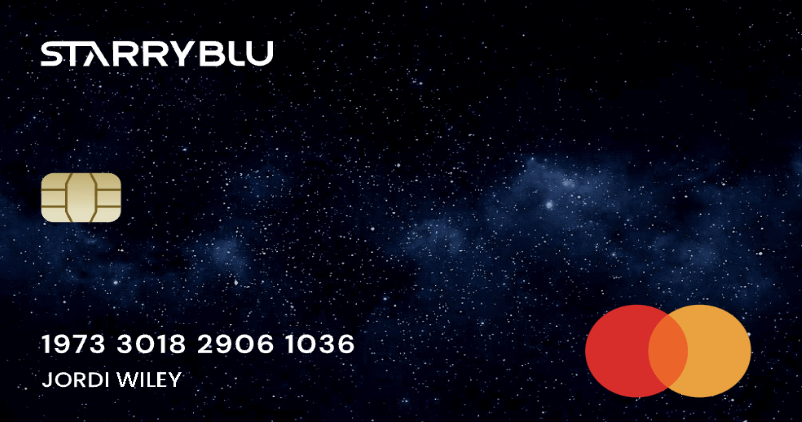Unlocking the Secrets: Alternative Methods for Sending Money to Africa from the USA besides Traditional Banks
GPT_Global - 2024-05-27 15:30:11.0 929
Are there any alternative methods for sending money to Africa from the USA besides traditional banks?
Sending money to Africa from the USA can be a crucial task for many individuals and businesses. Traditional banks have been the go-to option for years, but they often come with high fees, slow processing times, and limited accessibility. Fortunately, there are alternative methods for remittance that offer lower costs, faster transactions, and more convenience.
1. Online Money Transfer Platforms: With the advancement of technology, online money transfer platforms have become popular among people sending money to Africa. These platforms, such as TransferWise, WorldRemit, and Azimo, offer competitive exchange rates, low fees, and fast processing times. They also provide the convenience of being able to send money from your computer or smartphone, making them a popular choice for many.
2. Mobile Money Transfer: Mobile money transfer services have gained immense popularity in recent years. This method allows users to send money through their mobile phones using apps like M-Pesa, EcoCash, and MTN Mobile Money. The transaction is instant, and the recipient can access the funds through designated agents or their mobile wallets. This method is not only convenient but also cost-effective, making it an ideal option for small-scale transfers.
3. Money Transfer Companies: Money transfer companies like Western Union and MoneyGram have been in the remittance business for a long time. They have an extensive network of agents, making it easy for recipients to receive money in cash. However, these companies still have higher fees compared to other options, but they are a reliable choice for emergency transfers.
4. Cryptocurrency: Cryptocurrency has started gaining popularity as a means of remittance. Platforms like BitPesa and BitcoinAfrica allow users to send money directly to recipients in Africa through digital currencies. This offers lower fees and faster transactions, but it requires both parties to have a cryptocurrency wallet and knowledge of how it works.
In conclusion, sending money to Africa from the USA does not have to be limited to traditional banks. Thanks to technological advancements, there are now various alternative methods for remittance that offer lower costs, faster processing times, and more convenience. It's important to weigh the pros and cons of each option and choose the one that best suits your needs and preferences.

What are some common reasons for a failed money transfer from the USA to Africa?
Why Money Transfers from the USA to Africa May Fail
Transferring money from the USA to Africa is a common practice for many individuals and businesses, as well as an essential service provided by remittance businesses. However, there are some common reasons why a money transfer from the USA to Africa may fail. In this article, we will explore these reasons to better understand the challenges of international money transfers.
One of the most common reasons for a failed money transfer from the USA to Africa is incorrect recipient information. It is crucial to provide accurate details such as the recipient's full name, address, and bank account number. Any small error in this information can result in a failed money transfer or delayed delivery, causing frustration for both the sender and receiver.
Delays in processing the transfer can also occur due to strict security measures. With the rise of international money laundering and fraud, financial institutions are required to verify and validate each transaction. This process may take longer in some cases, resulting in a failed money transfer.
Another reason for a failed money transfer is insufficient funds. If the sender does not have enough money in their account to cover the transfer amount and fees, the transaction will not go through. It is essential to ensure that the sender has enough funds before initiating a transfer to avoid any delays or failures.Issues with the recipient's bank can also lead to a failed money transfer. If the recipient's bank does not have a partnership or correspondent bank relationship with the remittance business, it may be difficult to complete the transaction. This issue is more prevalent in rural areas or less developed countries where there are limited banking options.
Lastly, technical issues can also cause a failed money transfer. With the increasing reliance on technology in the remittance industry, any glitches or system errors can lead to delays or failures in transferring money. It is crucial to choose a reputable remittance business that has a secure and reliable platform to minimize this risk.
In conclusion, there are several common reasons why a money transfer from the USA to Africa may fail, such as incorrect recipient information, delays in processing, insufficient funds, issues with the recipient's bank, and technical glitches. To ensure a successful transfer, it is essential to double-check all information, have sufficient funds, choose a reputable remittance business, and be patient throughout the process.
Is it better to send a large sum of money or smaller amounts at a time to Africa from the USA?
When sending money to Africa from the USA, one common dilemma that arises is whether to send a large sum of money at once or smaller amounts over time. Both options have their own merits and it ultimately depends on your personal situation and needs.
Sending a large sum of money at once may seem like the more convenient and efficient option. This way, you can avoid multiple transaction fees and potentially get a better exchange rate. However, there are risks associated with sending a large sum of money at once. For instance, if the transfer gets delayed or goes missing, it could be a significant loss for you.
On the other hand, sending smaller amounts at a time can be a safer option. It minimizes the risk of losing a large sum of money in case something goes wrong during the transfer. Additionally, it allows for more flexibility in terms of managing your finances. You can also take advantage of different exchange rates and transaction fees at different times to get the best deal.
Ultimately, the best approach would be to find a balance between the two options. Consider your immediate needs and the reliability of the remittance service provider. If you need to send a large sum urgently, it may be better to do it at once. But if you have the luxury of time and want to minimize risks, sending smaller amounts over time may be a better choice.
In conclusion, there is no one size fits all solution when it comes to sending money to Africa from the USA. It is important to carefully consider your options and choose what works best for your individual circumstances.
Are there any age restrictions for sending money to Africa from the USA?
Sending money to Africa from the USA is a common practice as many people have family and friends living in different African countries. However, there are certain age restrictions that one must keep in mind when sending money to Africa. In general, the minimum age requirement for sending money from the USA to Africa is 18 years old. This is because most money transfer companies require individuals to be of legal age to open an account and use their services. Moreover, some African countries also have specific age restrictions for receiving money. For instance, in Nigeria, individuals must be at least 16 years old to receive a money transfer. In Ethiopia, the minimum age requirement is 18 years old. It is important to note that these age restrictions may vary depending on the money transfer company and the African country you are sending money to. It is best to check with the specific company or consult with the recipient in Africa to confirm the age requirements. If you are sending money to a minor in Africa, it is necessary to have a guardian or parent involved in the process. They may need to provide additional documentation and identification to ensure the transfer is authorized. In addition, some money transfer companies may have their own policies regarding age restrictions. For example, they may require individuals under the age of 18 to have written consent from a parent or guardian before using their services. In conclusion, while there are no specific age restrictions for sending money from the USA to Africa, it is important to be aware of any age restrictions that may apply to the recipient in the African country. It is always best to verify with the money transfer company and have all necessary information and documentation ready to facilitate a smooth and hassle-free transfer.How can I protect my privacy when sending money to Africa from the USA?
With the increasing demand for overseas remittance, the process of sending money to Africa from the USA has become easier and more convenient. However, in today's digital age, protecting your privacy while making these transactions has become a major concern for many individuals. Here are some tips to ensure the safety of your personal information when sending money to Africa:
1. Choose a reputable remittance provider
When it comes to transferring money, it is important to use a trusted and established remittance service. Make sure to research the company before making any transactions. Look for reviews, customer feedback, and credentials to ensure the safety and security of your personal information.
2. Use secure websites and apps
Always use websites and apps that are secured with SSL encryption. This is indicated by a locked padlock symbol on the website's URL. This will protect your personal and financial information from being intercepted by hackers or unauthorized parties.
3. Never share your login details
Do not give out your login details to anyone, including friends or family members. Keep your password and other login information confidential to prevent any unauthorized access to your account.
4. Avoid using public Wi-Fi
When making any financial transactions, avoid using public Wi-Fi as it is not secure and can make your personal information vulnerable to hackers. Instead, use a private and secure internet connection to protect your privacy.
5. Monitor your transactions regularly
Be vigilant and regularly check your bank statements and transaction history to ensure there are no unauthorized transactions. If you notice any suspicious activity, report it immediately to your bank or remittance provider.
In conclusion, by following these simple tips, you can protect your privacy and ensure the security of your personal information when sending money to Africa from the USA. Remember, it is always better to be cautious and take necessary precautions to avoid any potential risks or fraudulent activities.
Are there any international transfer fees for sending money from the USA to Africa?
In today's interconnected world, sending money overseas is a common occurrence. Whether it's for family support, business transactions, or charitable donations, people in America often need to transfer money to Africa. However, one question that many people have is whether there are any international transfer fees associated with sending money from the USA to Africa. The answer to this question is not a simple yes or no as it depends on several factors.
Firstly, the method used to send money can affect the transfer fees. Traditional methods such as bank wire transfers or international money orders can incur high fees. These fees can range from a flat rate to a percentage of the total amount sent. However, with advancements in technology, there are now more cost-effective and convenient ways to transfer money, such as online money transfer services or mobile money apps.
Secondly, the currency exchange rate can also impact the overall cost of sending money to Africa. When transferring money internationally, the currency of the sending country is usually converted to the currency of the receiving country. The exchange rate can vary, which means the recipient may receive less money than the sender intended. Some transfer services may offer competitive rates, while others may charge higher fees for currency conversions.
Another important factor to consider is the destination country in Africa. Each country may have its own policies and regulations when it comes to international money transfers. This can affect the fees, processing time, and even the availability of certain transfer services. It is essential to research the specific requirements of the country you are sending money to before initiating a transfer.
Lastly, different transfer services may have varying fee structures for sending money to Africa. Some may offer lower fees for larger amounts, while others may have fixed fees regardless of the amount sent. It is essential to compare the fees and rates of different transfer services to find the most cost-effective option for your specific needs.
In conclusion, when sending money from the USA to Africa, there may be international transfer fees involved, but the amount can vary depending on multiple factors. It is crucial to do your research and compare different transfer services to find the most affordable and convenient option for you. With the right service and proper planning, sending money to Africa can be a hassle-free experience.
Can I send money to Africa from the USA via mobile apps?
Sending money to Africa from the USA can be a costly and time-consuming process. However, with the rise of mobile applications, remittance has become a more convenient and accessible option. Here are some benefits of using mobile apps for sending money to Africa. 1. Cost-Effective: Traditional methods of remittance often involve high fees and exchange rates. Mobile apps, on the other hand, offer competitive rates and lower fees, making it a cost-effective option for sending money to Africa. 2. Fast Transfers: Most mobile apps for remittance promise instant transfers, allowing you to send money to Africa within minutes. This eliminates the long waiting periods associated with traditional methods such as bank transfers or checks. 3. Convenience: Mobile apps offer the convenience of sending money anytime, anywhere. You no longer have to visit a physical location or wait for business hours to send money to Africa. All you need is a smartphone and an internet connection. 4. Safety and Security: Mobile apps for remittance have built-in security measures to protect your transactions. Your personal and financial information is encrypted, ensuring safe and secure transfers to Africa. 5. Multiple Payment Options: Mobile apps offer various payment options such as credit/debit cards, bank transfers, and even cash pickup, giving you more flexibility when sending money to Africa. In conclusion, using mobile apps for remittance is a convenient, cost-effective, and secure way to send money to Africa from the USA. With its ease of use and instant transfers, it is an ideal solution for anyone looking to make fast and reliable remittance transactions. So, why wait? Download a remittance app today and start sending money to your loved ones in Africa.Are there any differences in fees when sending money to urban vs. rural areas in Africa from the USA?
Remittances, or the money sent by immigrants to their home countries, play a crucial role in the economies of many African nations. In fact, according to the World Bank, remittances to Sub-Saharan Africa reached $46 billion in 2018, making it the most remittance-dependent region in the world.
However, when it comes to sending money to urban versus rural areas in Africa from the USA, there are some differences in fees that should be noted.
Firstly, it’s important to understand that fees for remittances vary depending on several factors, including the provider used, the amount being sent, and the location where the money is being sent. In general, sending money to urban areas may incur lower fees compared to rural areas.
This is due to several reasons. Urban areas tend to have a higher density of informally operating money transfer agents, which results in greater competition and lower fees. In contrast, rural areas often have fewer options for sending and receiving money, which can drive up the fees.
In addition, infrastructure plays a role in the cost of sending remittances. Urban areas typically have more developed banking systems and technological advancements, allowing for more efficient and cheaper money transfers. On the other hand, rural areas may lack these resources, resulting in more expensive transactions.
Another factor to consider is the exchange rate. Sending money to rural areas from the USA may require multiple currency conversions, which can result in higher fees. In contrast, sending money to urban areas may only involve one currency conversion, making it a more cost-effective option.
In conclusion, while fees for sending money to urban versus rural areas in Africa from the USA may differ, it’s important to compare different providers and consider all factors involved before making a decision. This will ensure that you are able to send money to your loved ones in the most efficient and affordable way possible.
About Panda Remit
Panda Remit is committed to providing global users with more convenient, safe, reliable, and affordable online cross-border remittance services。
International remittance services from more than 30 countries/regions around the world are now available: including Japan, Hong Kong, Europe, the United States, Australia, and other markets, and are recognized and trusted by millions of users around the world.
Visit Panda Remit Official Website or Download PandaRemit App, to learn more about remittance info.



